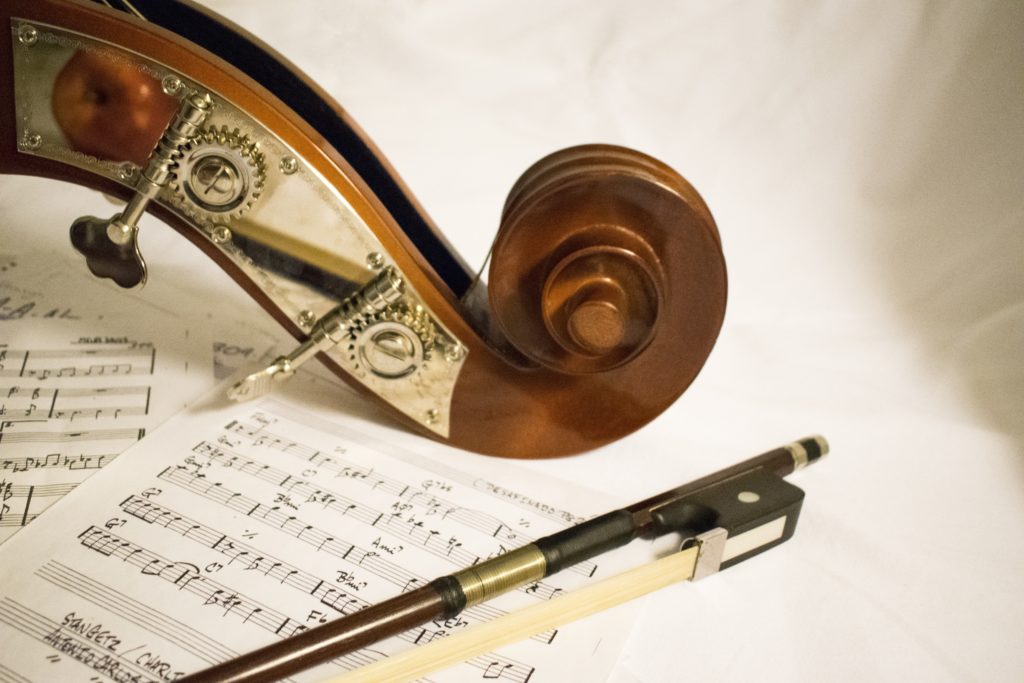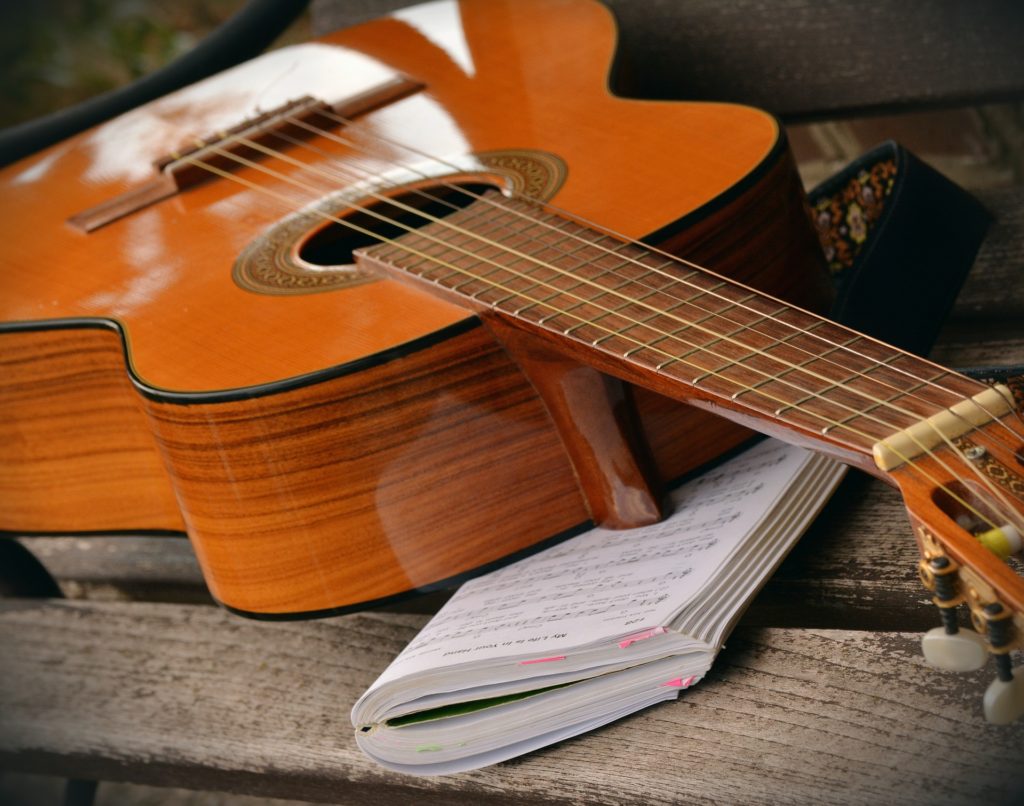
Can I Learn Music Theory On My Own?
Music theory is the overall language in western music that explains the hows and whys behind why music sounds a certain way. It connects harmony, melody, and rhythm and explains the relation.
You can learn music theory on your own. However, it is more difficult than with a teacher as feedback is missing. Music theory can be learned through one’s instrument as well as through different books and online sources such as Coursera courses and YouTube channels.
Learning music theory on your own requires time, energy, and patience when educating oneself. There is a lot to learn including compositional elements such as rhythm, tempo, harmony, and more.

Ways to Learn Music Theory
Music theory can be learned in a variety of ways. It can be studied comprehensively, in segments, online, through books, in-person, and by playing instruments. With overwhelming numbers of options to choose from, Leading Musicians has decided to highlight some quality sources for you to start your musical journey on as well as to compare types of musical learning.
Free Online Coursera Courses to Learn Music Theory
With the online Coursera courses, you won’t have to worry as much about having gaps in your music theory education since most of these courses are fairly comprehensive. Each course has a description by it offering information about its length, level of difficulty, and topics.
| Online Music Courses | Level | Cost | Time to Complete | Description of Course |
| Fundamentals of Music Theory By The University of Edinburgh | Beginner | Free | 4 Hours | This course split into four weeks covers pitches, scales modes, and chords week one. Keys, minor scales, intervals, and clefs are focused on week 2. Rhythm and form follow the next week and lastly functional harmony. It covers all the basics of Western music theory to more advanced concepts. Plus it receives a five-star rating from about 75% of its students. |
| Getting Started With Music Theory By Michigan State University | Beginner | Free | 13 Hours | The Getting Started with Music Theory course promises at the end of the course, “you should know all the major and minor keys, how to read and write in treble and bass clef using standard meters and rhythmic values, and how to notate and harmonize a simple melody. This course can serve as a stand-alone basic music theory course, or it can be a springboard to more advanced theory and composition courses.” In addition, Bruce Taggart receives an exceptional 4.65 rating from his online students on his teaching skills. |
| Developing Your Musicianship Specialization By Berklee College of Music | Beginner | Free | 5 months (suggested 3 hours per week) | This five-month program provides you in-depth knowledge and skills of music theory. It provides: An intense focus on harmony and ear training.Introduces chord charts, diatonic chords, and minor keys. Teaches tensions, harmonic function, and modal interchange. This course is unique in the fact that it requires a capstone project where students are told to write and perform a 24-measure musical composition in “A A B A song form” to demonstrate their growth as a musician. This course received a raving 4.9-star rating from its top instructor George W. Russell, Jr., a Berklee College of Music Professor. Additionally, 50% of course participants started a new career after completing this specialization, and 14% received pay increases. |

Best YouTube Channels To Learn Music Theory
On YouTube, both comprehensive and scattered music theory videos are offered. Depending on your musicianship goals and how you like to learn best, you can select the YouTube channel that suits your needs best.
| YouTube Channels | Level | Description of YouTube Content |
| Andrew Furmanczyk | Beginner to Advanced | Offering a comprehensive music theory course all on YouTube, Andrew Frumanczyk offers a 50 video long playlist titled Learning Free Music Theory. While the lighting and sound quality are slightly poor, the knowledge and information are priceless and well worth the watch. He holds around a half million subscribers to back that statement too. |
| YaleCourses | Beginner to Advanced | The playlist Listening to Music with Craig Wright is excellent on the YaleCourses channel. With a semester’s worth of 50-minute classes on Yale’s Course Listening to Music (MUSI 112), this playlist touches on everything from music genres, rhythm fundamentals, melody with Mozart, bass patterns in blues and rock to musical impressionism and exoticism. This course leads to an understanding of Western music by developing aural skills and introducing how music is put together. While this course won’t cover every basic element of music theory, it will give students a good start. |
| Dave Conservatoire | Beginner to Advanced | Offering over 250 videos of music theory topics, Dave Conservatoire offers both basic music theory videos as well as more advanced topics including key signatures, staff and clefs, rhythm, harmony, scales, pitch, and even a MuseScore crash course. However, a downside is there is no comprehensive playlist for music theory on this channel. |
| Music Theory Guy | Beginner | At close to 90,000 subscribers, Music Theory Guy presents over 70 high-quality, easy-to-follow videos with great visuals and explanations. He covers all the fundamental topics of music theory for his followers. You can easily work on little bits of music theory at a time. |

Books to Learn Music Theory
Books are helpful for learning music theory as they tend to be laid out chronologically versus just finding random music theory videos here and there on YouTube. Books won’t leave holes in your musical education. Music theory books are great if you love learning by reading. Noted are general, instrument-specific, and kid-friendly books.
| Book Title | Level | Description of Book |
| The Complete Idiot’s Guide to Music Theory By Michael Miller | Beginner | This book instructs musicians on how to navigate the basics of reading and composing music. Topics include the basics of tones, tunes, rhythm, accompaniment, composing, and arranging. Additionally, this book offers expanded online-ear training and exercises at the end of each chapter. |
| Adult All-In-One Course: Lesson-Theory-Technic: Level 1 By Plastic Comb | Beginner | Since the piano is a commonly played instrument, we decided to include this book that teaches a piano specific music theory and has a complete course on it. The Adult All-In-One Course encompasses finger strengthening drills, isometric hand exercise, and written assignments to test one’s understanding of the lesson’s concepts. |
| Theory Made Easy for Kids: Level 1 By Lina Ng | Beginner | For children learning music theory, this book makes it appealing with fun visuals and sticker learning. It introduces easy concepts that are reinforced by repetition and are recommended for kids ages 4-7-year-olds. |

Learning on Your Own Vs. Learning With a Teacher
While learning music theory by yourself has its appeals, it isn’t all rainbows and roses. Yes, learning music theory on your own is less expensive, allows you a flexible schedule to learn when you want for how long, and gives you easy access to several teachers whom you can easily switch between if you don’t like one.
However, what you will miss out on in self-study music courses is that you won’t have the help of the teacher specifically integrating music theory into the instrument with which you are learning and practicing. You won’t have the feedback to know whether or not you are understanding or interpreting a concept the correct way. This means you could be practicing and reinforcing mistaken notions. However, learning with a music teacher is often more expensive and is an important factor to consider based on your finances.
Depending on the route you choose for learning on your own, you may not have a comprehensive music theory course making it easy to miss important concepts and you may not have assignments in which to practice music theory concepts. Most importantly, only a teacher or musician peer can verify your understanding.
Deciding to Learn Music Theory On Your Own
Choosing to learn music theory can be a huge undertaking. Deciding how it is best for you to study music theory can vary based on your personal motivation level to get things done, your self-discipline, your learning style, your musical level, and musical goals.

Choosing How to Learn Music Theory
Whether you choose to learn music theory on your own, learn it from the same music teacher who gives you lessons on your instrument or enroll in a music theory course, learning music theory is vital for being a well-rounded musician.
Here is a quick outline of musical theory learning options:
| Online Courses | YouTube Channels | Books | With Teachers |
| Coursera offers many free music theory classes that can take you as in-depth as you wish to go into music theory. Benefits are that you can set the time and pace you want to move at for learning this material. | YouTube is an excellent source for cheap, high-quality information as long as you take the time to find it. With skilled professors and advanced musicians teaching courses, all levels of musicians will find useful information here. However on YouTube, if there is no comprehensive music theory playlist, be aware that you may have gaps in your music theory education. However, learning any music theory can add to your musicianship. | Learning music theory will ensure you have a comprehensive music theory education. The main consideration here is how you learn best, whether that is by reading, watching videos online, or being instructed in person. | Signing up for lessons with a music teacher will allow you to receive feedback, integrate music theory into the instrument you are practicing on, and allow you to avoid practicing in mistakes. However, learning music with a teacher can be more expensive so knowing how much you have to invest in your musicianship could be the deciding factor here. |